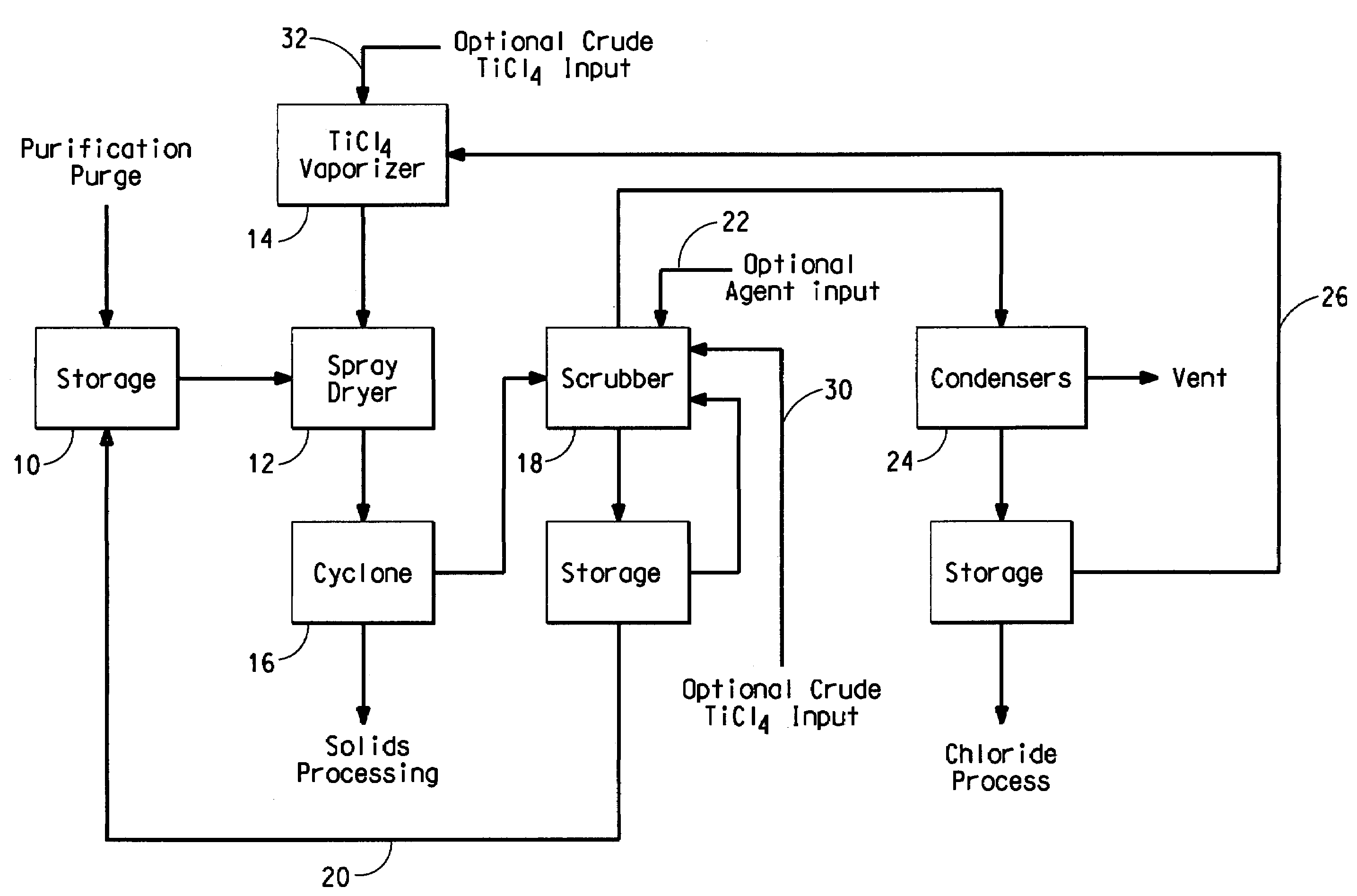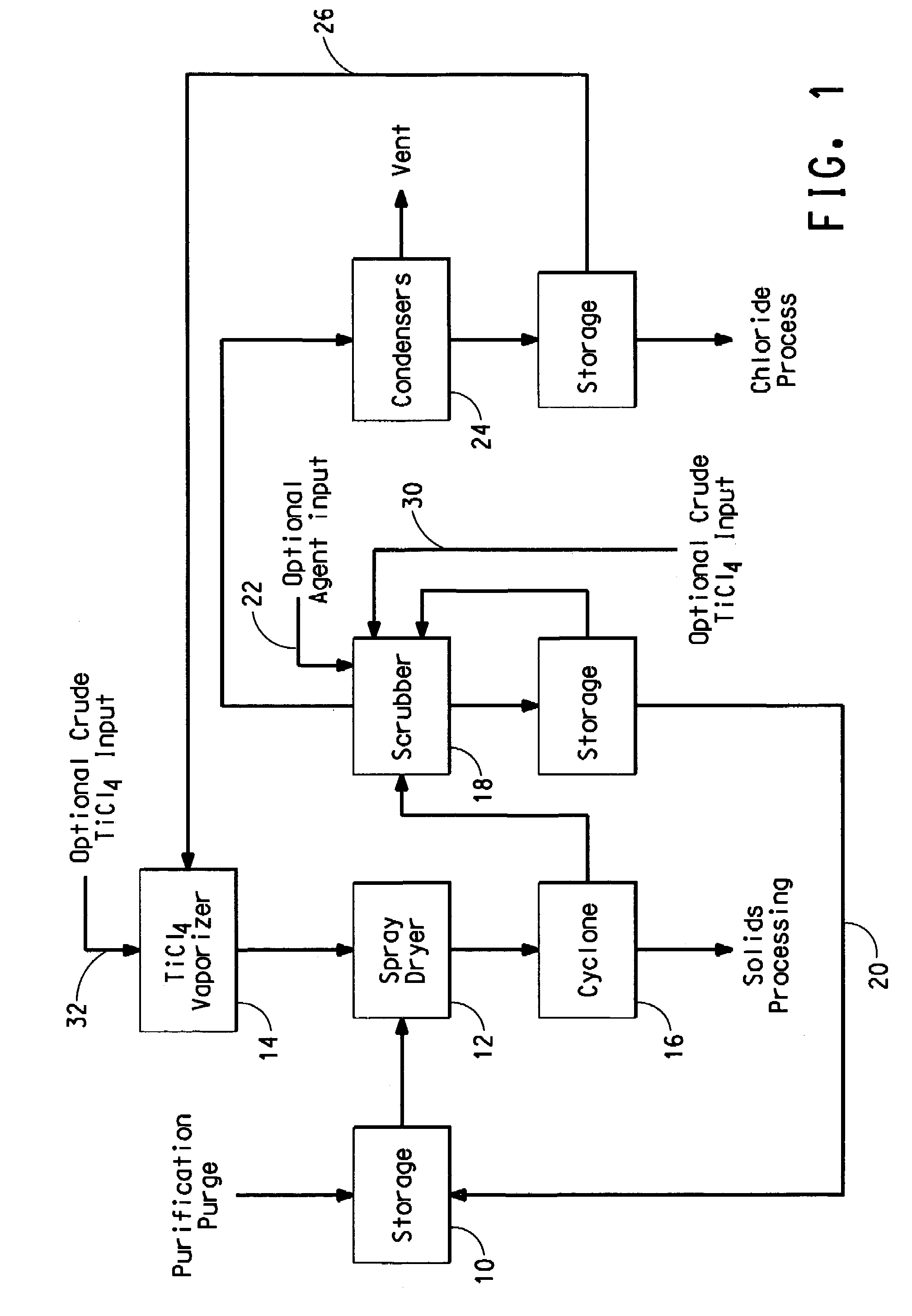Process for separating solids from a purification purge stream
a technology of purification purge and solid separation, which is applied in the direction of titanium tetrachloride, chemistry apparatus and processes, titanium compounds, etc., can solve the problems of difficult separation and difficult economic recovery
- Summary
- Abstract
- Description
- Claims
- Application Information
AI Technical Summary
Benefits of technology
Problems solved by technology
Method used
Image
Examples
Embodiment Construction
[0016]The titanium tetrachloride-containing feedstock that is purified to form the purification purge stream is commonly produced by chlorinating a titaniferrous ore, such as ilmenite, rutile, arizonite, leucoxene and titanium slags and concentrates, in the presence of carbon or carbonaceous material, e.g. coke, at temperatures from 500° C. to about 1,400° C. The chlorination is typically conducted in a static bed or a fluidized bed reactor. Ore and chlorine are introduced into a chlorinator and titanium and other metals are chlorinated to their respective chlorides. In addition to titanium tetrachloride, typical metal chloride components in the product effluent include chlorides of iron, silicon, tin, aluminum, vanadium, chromium, niobium (columbium), tantalum, tungsten, tin, zirconium, etc. Most of the chlorides formed during the chlorination process are removed by partial condensation, leaving titanium tetrachloride comprising vanadium chloride as the primary impurity.
[0017]In th...
PUM
| Property | Measurement | Unit |
|---|---|---|
| temperature | aaaaa | aaaaa |
| temperature | aaaaa | aaaaa |
| temperature | aaaaa | aaaaa |
Abstract
Description
Claims
Application Information
 Login to View More
Login to View More - R&D
- Intellectual Property
- Life Sciences
- Materials
- Tech Scout
- Unparalleled Data Quality
- Higher Quality Content
- 60% Fewer Hallucinations
Browse by: Latest US Patents, China's latest patents, Technical Efficacy Thesaurus, Application Domain, Technology Topic, Popular Technical Reports.
© 2025 PatSnap. All rights reserved.Legal|Privacy policy|Modern Slavery Act Transparency Statement|Sitemap|About US| Contact US: help@patsnap.com


